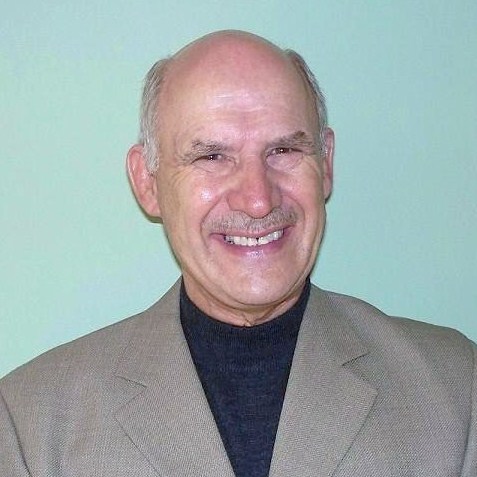On a summer’s day in New Brunswick, whilst a rookie member of the Royal Canadian Mounted Police, I had the strange experience of having a person die in my arms. A middle-age man had lost control of his vehicle on a winding country road and slammed into a culvert. By the time I arrived on the scene, he had crawled from the car and was lying by the roadside in a bed of wildflowers. His breathing was heavy and he had a repeating, wheezy cough. I tried to ease his discomfort by holding him in my arms. He kept looking straight at me as I was assuring him the ambulance would soon be along. His breathing became weaker and weaker, and in just a few more minutes he died, without any fuss whatsoever, right there in my arms.
Later, mulling over his dying, the question just kept popping in my mind: when your bodily functions shut down and you die, what happens to your soul and where does it go? Souls are usually described as being without bodily form and immortal, and being able to survive death into some form of an afterlife. If indeed the soul is incorporeal, is it an immeasurable entity without trace that exists independently of anything else? I can understand the hardware of the brain dying with one’s body, but what about the software of the mind—soul, spirit, or whatever? Why would that die too? If there is individual immortality, is the route via the soul? The question of a divine element in the soul has been a subject of everlasting debate, and there’s been oodles of philosophic nattering on the soul- body relationship in terms of form and matter. But read all about it and discuss it with whom you may, there is very little clarity to be had—certainly nowhere near the level of reasonable and probable grounds—to be found. Many posit that the soul is where God dwells in us.
Bertrand Russell in his autobiography says at age 15 he spent considerable time thinking about the validity of Christian religious dogma, and by 18 had decided to discard the last of it. Russell’s father, a well-known atheist, died when young Russell was only 6 years old. One wonders as he grew older just how much influence his father’s earlier thinking had on him. It’s easily accepted that a caring son would want to support his father’s way of seeing things, especially so, when the loss of his father weighed heavily in his early development.
In his book “Why I am not a Christian,” Russell states, “I believe that when I die, I shall rot, and nothing of my ego will survive.” He makes repeated reference to “all the evidence” suggesting such-and-such. He was experiencing similar difficulty as the rest of us in trying to rationally justify the existence of a supernatural power. Within our natural world, let alone a supernatural one, we only possess limited knowledge therefore making subsequent conclusions on the supernatural can often be flimsily based and found wanting.
Russell says: “We know that the brain is not immortal, and that the organized energy of a living body becomes, as it were, demobilized at death and therefore not available for collective action. All the evidence goes to show that what we regard as our mental life is bound up with brain structure and organized bodily energy. Therefore, it is rational to suppose that mental life ceases when bodily life ceases. The argument is only one of probability, but it is as strong as those upon which most scientific conclusions are based.”
Bertrand Russell was an intellectual giant and one who spoke with a level of rationale and honesty that surpassed many others of his time, so one is somewhat hesitant to be critical of him. Yet, his findings and conclusions as to whether or not there is a God are based on a human rational model of thinking. I conclude Russell is off the mark. In our natural world you just cannot, be it Bertrand Russell or anyone else, use our models of evidence and so-called fact collection, within our natural world to prove or disprove whether or not God exists, in a supernatural world. As I see it there is just no sense to be found in attempting to match or compare the natural with the supernatural.




